The life of a guitar tech is equal parts craft, chaos, and on-the-fly problem-solving. Though Ryan Chan, Luis Munoz, and Drew Foppe share this whirlwind existence, their unique paths—and the gigs those paths have led to—highlight just how varied and demanding it can be.
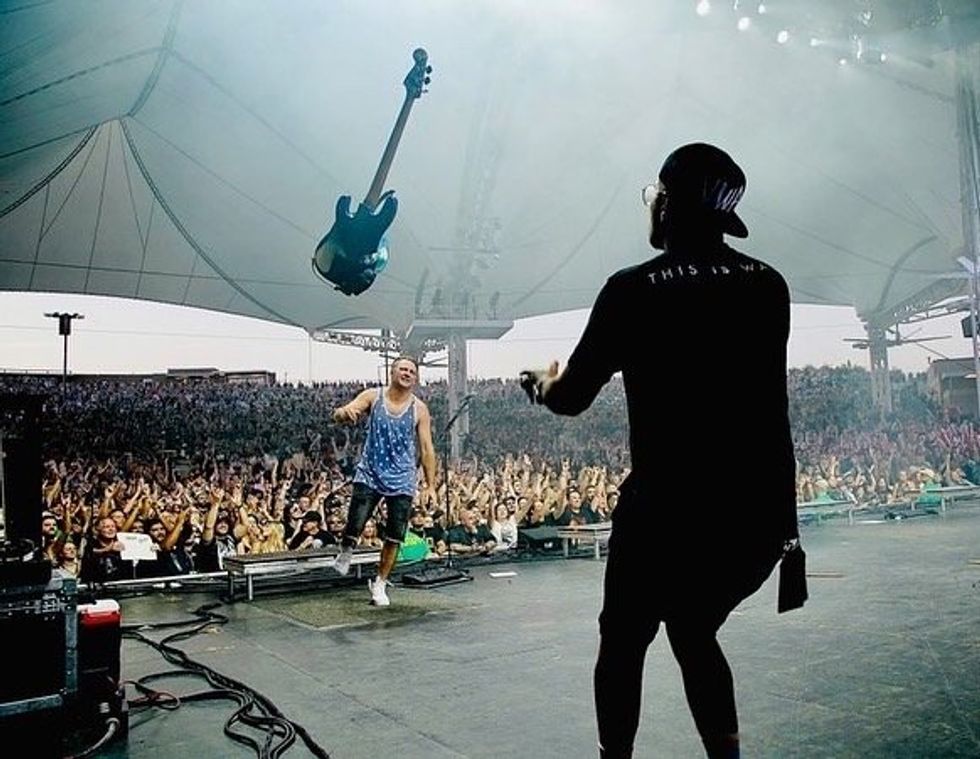 Luis Munoz makes the catch.
Luis Munoz makes the catch.Chan’s journey began long before he was wrangling digital and hybrid rigs for bands like Loathe and Spiritbox. Growing up in Hong Kong, he dreamed of music production, though a move to the U.K. would quickly alter that goal. Munoz took a more deliberate path, landing in Hollywood and sharpening his skills as a luthier before finding himself in the middle of pop-rock’s great revival working for Olivia Rodrigo. Foppe, meanwhile, initially had no desire to work in music, but he still found himself pulled into a decades-long career with some of the biggest names in the business.
These three techs come from very different places, both professionally and geographically. Still, their stories converge in the relentless grind of touring life, full of long days, constant travel, and endless hours working behind the curtain to keep internationally-known guitarists playing and sounding their best. Here, they step out from behind that curtain to discuss the stories, rigs, and realities that shape a life lived just out of the spotlight.
Ryan Chan (Loathe, Spiritbox)
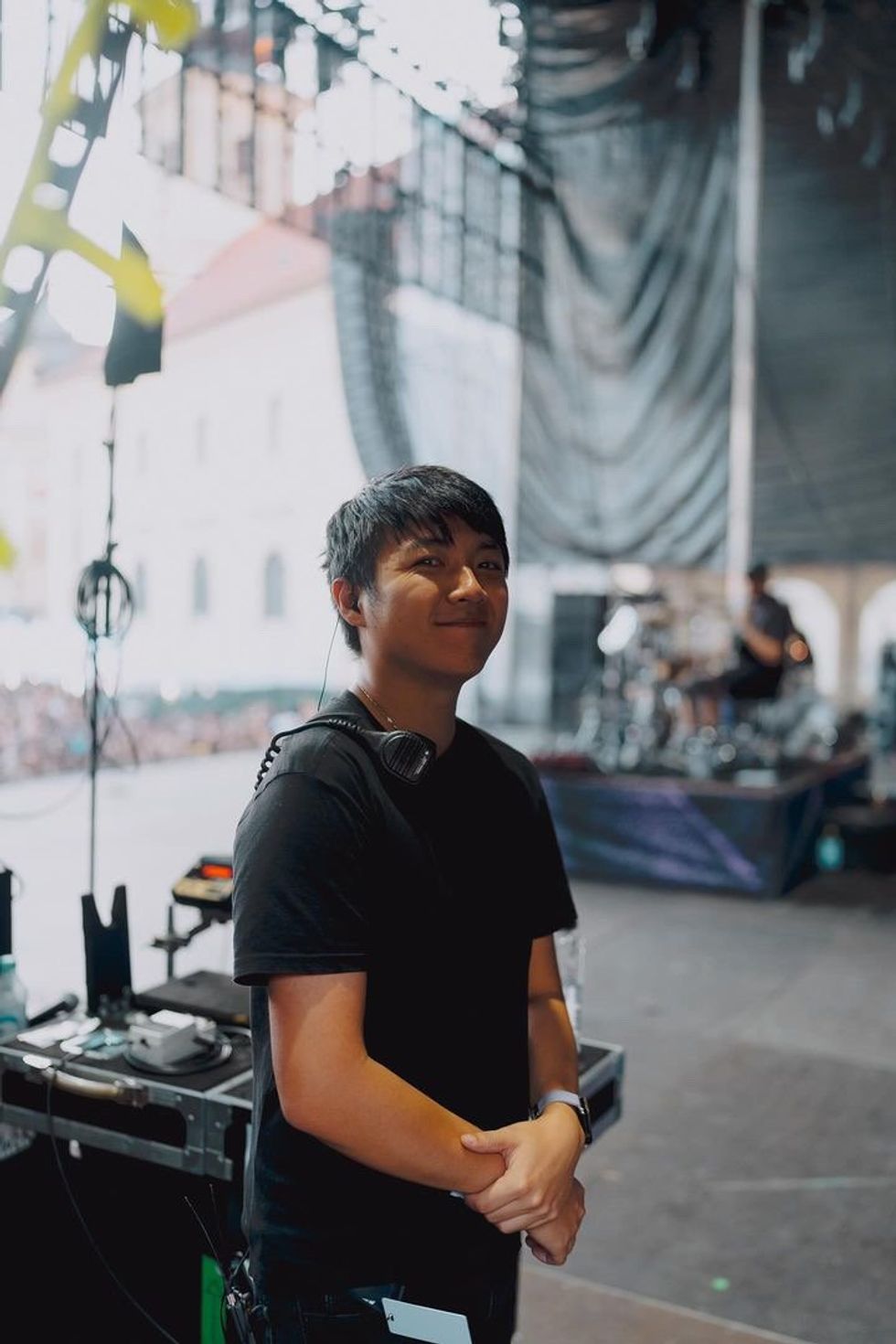
Ryan Chan gets in tune.
You were born in Hong Kong and literally moved halfway across the world to start your career. Tell me about that journey and how you became a guitar tech.
Ryan Chan: I wanted to be a producer, so I came to Leeds six years ago because of music university, where I joined the music production program. There was one guy in my course named Adam, who’s a good friend of mine, and he was a front-of-house engineer for Loathe. I think at one point they needed a tech, and he was like, “You like to mess with guitars. Come do it with me on the road.” And that’s how it all started.
You’re currently working with Loathe and planning a big North American tour. What’s a day in the life for you when you’re out with them?
Chan: We don’t load in until maybe 2 o’clock. From there, it’s just kind of getting everything set up. I get all the pedalboards laid out and everything else ready to be thrown on the stage. Then it’s soundcheck, show, and then pack down, and on to the next show. I usually restring the guitars maybe once every three to four days.
As of this next tour, they’re also having me more involved outside of just the touring stuff. Like, two days ago, I was at Loathe’s new space helping program some sets with the playback and MIDI stuff.
Loathe showcased some of their unique guitars and equipment on one of our Rig Rundowns. What are they taking out these days?
Chan: There are four guitars and four basses. Some of them are spares that get used depending on how they’re feeling that day. We don’t carry different guitars with different tunings. They use multiple tunings, but they’ll tune everything themselves. The main variation is, one’s a baritone and one’s a normal-scale guitar. And I’m the only backline tech, so I’m also the one who looks after all their MIDI keyboards and stuff, too.
Loathe still use tube amps, although a lot of bands have turned to digital modelers for touring. How has the rise in digital touring rigs affected your work?
Chan: I’m used to it. Digital’s reliable, and it’s predictable. You’re not rolling the dice every time you put the amp in the trailer. When I worked with Spiritbox, they’ve always been all digital.
But with Loathe, it’s actually an interesting hybrid of [Fractal] Axe-Fx and amps. Eric [Bickerstaffe] plays with a [Marshall] JCM800 and treats the Axe-Fx as a big front-end pedalboard. Faisal [El-Khazragi], the bass player, uses an Ampeg SVT. But I believe, for this next tour, we’re actually switching back to Axe-Fx for pure simplicity. I guess, maybe more so for bass, the trade-off is worth it.
You’re still in the early part of your career. Are there any lessons you’ve learned on the road that make you better at your job?
Chan: One thing I’ve had to learn is how to communicate and ask people for help, rather than waiting for someone higher up to do the asking for me. You’ve gotta be a bit more assertive, and be like, “All right, here’s an issue. I need to go find the people that will help me fix this issue.” Also, if I’m gonna say no to something, I’d better have a really good reason as to why we can’t do it.
Talk about the reality vs. the expectation of being a touring guitar tech.
Chan: I don’t want to undersell it, but it’s not as glamorous as people might want to make it out to be. It is very much a job. When you first get into it, it’s so fresh, and it’s so exciting. It’s so fun. Then suddenly that wears off, and you have to look at it as a responsibility. So learning to enjoy the road again has been a fun experience for me.
The three tools Ryan Chan can’t live without:
● Dunlop String Action Gauge
● Multi-bit screwdriver
● USB-powered soldering ironLuis Munoz (Olivia Rodrigo, Smashing Pumpkins, Bush, LP)
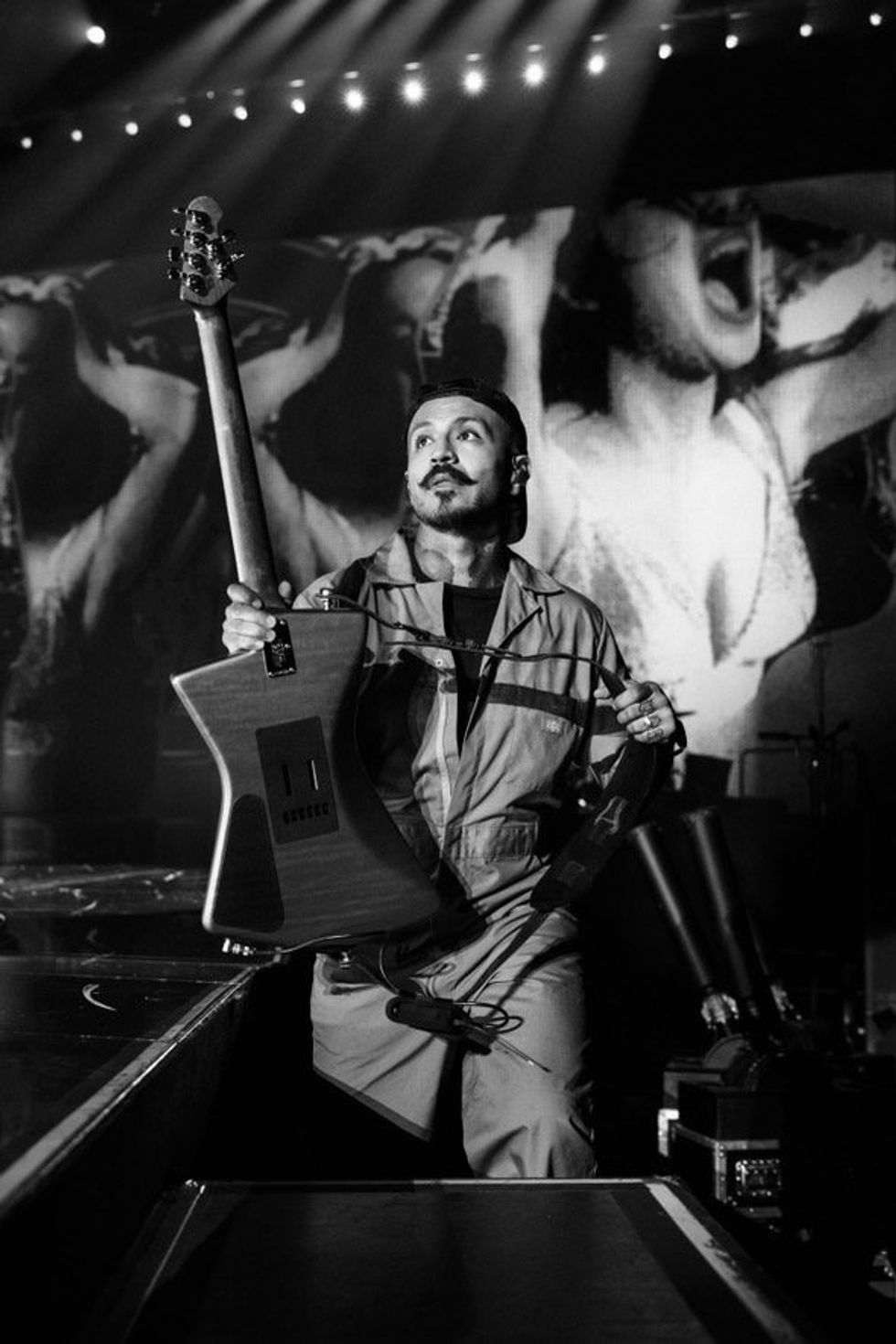
Luis Munoz brings an Ernie Ball Music Man St. Vincent to the Olivia Rodrigo stage.
Your goal was always to be a guitar tech. But how did you get your foot in the door in such a competitive industry?
Luis Munoz: It’s a hard community to get into, but once you’re in, you’re in forever. So I remember thinking to myself, “I’m going to become undeniable and really good at what I do.” So, I went to Guitar Craft Academy in Hollywood and started working in shops around town. But I always wanted to go on tour. Then one of my clients and another buddy got me a gig, and I went on my first tour for an artist that goes by the name of LP. Just like that, I started getting call after call.
You’ve worked for some massive rock bands. But working in a huge pop production like Olivia Rodrigo’s has to be a lot different. What’s a typical day in that camp look like?
Munoz: My days would start with changing strings and doing all the stuff that I need to so that, when the stage is rolled into place, we can start plugging in, patching, and making sure everything works. We do a quick line check, and then the band would come out and run a song or two. Then you hurry up and wait until it’s your time to do a show.
Doing the show is, I feel, what’s different in the pop world versus the rock world. I was part of the show. I would hand [Olivia] the guitar way out at the end of the thrust. Then I’d have to run that whole thing back, and, when she’s literally about to hit the chord, I would hit the unmute button. Then, when she’s done, I’d mute it, go on stage, and she’d throw me the guitar. After every show, I’d be drenched in sweat, like I just worked out.
Olivia is featuring a ton of guitar in her shows these days, and you’re responsible for three players, including your wife, bassist Moa Munoz. What kind of gear does the production require?
Munoz: Olivia loves rock and wants to try different things. So, this last tour we went from having two guitars to seven. It’s another funny pop-world thing, but we had different guitars for different outfits.
And yeah, I would also take care of my wife, Moa, who had five basses, and Daisy [Spencer], the second guitar player. She was doing a lot of acoustic stuff, but said, “I want to play electric on this tour.” I thought the [Ernie Ball Music Man] St. Vincent might look cool, and she was like, “Fuck yes. That’s the one!”
Ariana [Powell, guitar] also had a whole guitar boat to herself. My buddy takes care of her on stage right.
With such a choreographed production, are you guys using digital amp modelers?
Munoz: Definitely, I don’t think people understand how many variables you have to deal with when using amps. Everything from if the power is different to amps going from a trailer to a sea container to a plane to a bus. So Daisy and Ari were on Kempers, and then Moa was on Helixes. It’s all MIDI-controlled, because even the band actually has choreography now.
Tell me about a humbling experience or a lesson you learned on the road that made you better at what you do.
Munoz: When I was still doing local repairs and things, [Bush guitarist] Chris Traynor’s tour manager called me and asked, “Have you ever been on tour as a tech?” And I was like, “You know what? No. But I can’t imagine it being hard.” I remember he was like, “Did you just say it was going to be easy? I don’t think this is gonna work out.” [Laughs.] I was trying to sound overly confident. But, funny enough, a year or two later, Chris hit me up again, and I actually tech’d with Bush.
For people wanting to get into your world, what’s a reality of the job they should prepare for?
Munoz: It’s different hats when you’re a luthier and when you’re a tech on the road. Being a tech has helped me to not be so precious. You know, “If you’ve got a stripped strap button, you can’t just shove toothpicks in there and super glue.” And it’s like, of course not—in a perfect situation. But sometimes you just need to get it fixed.
The three tools Luis Munoz can’t live without:
● DeWalt electric gyroscopic screwdriver
● Sonic Research Turbo Tuner
● Music City Bridge “Quick Flip” SaddledriverDrew Foppe (Shinedown, Slipknot, Deftones, Shakira, Fleetwood Mac)
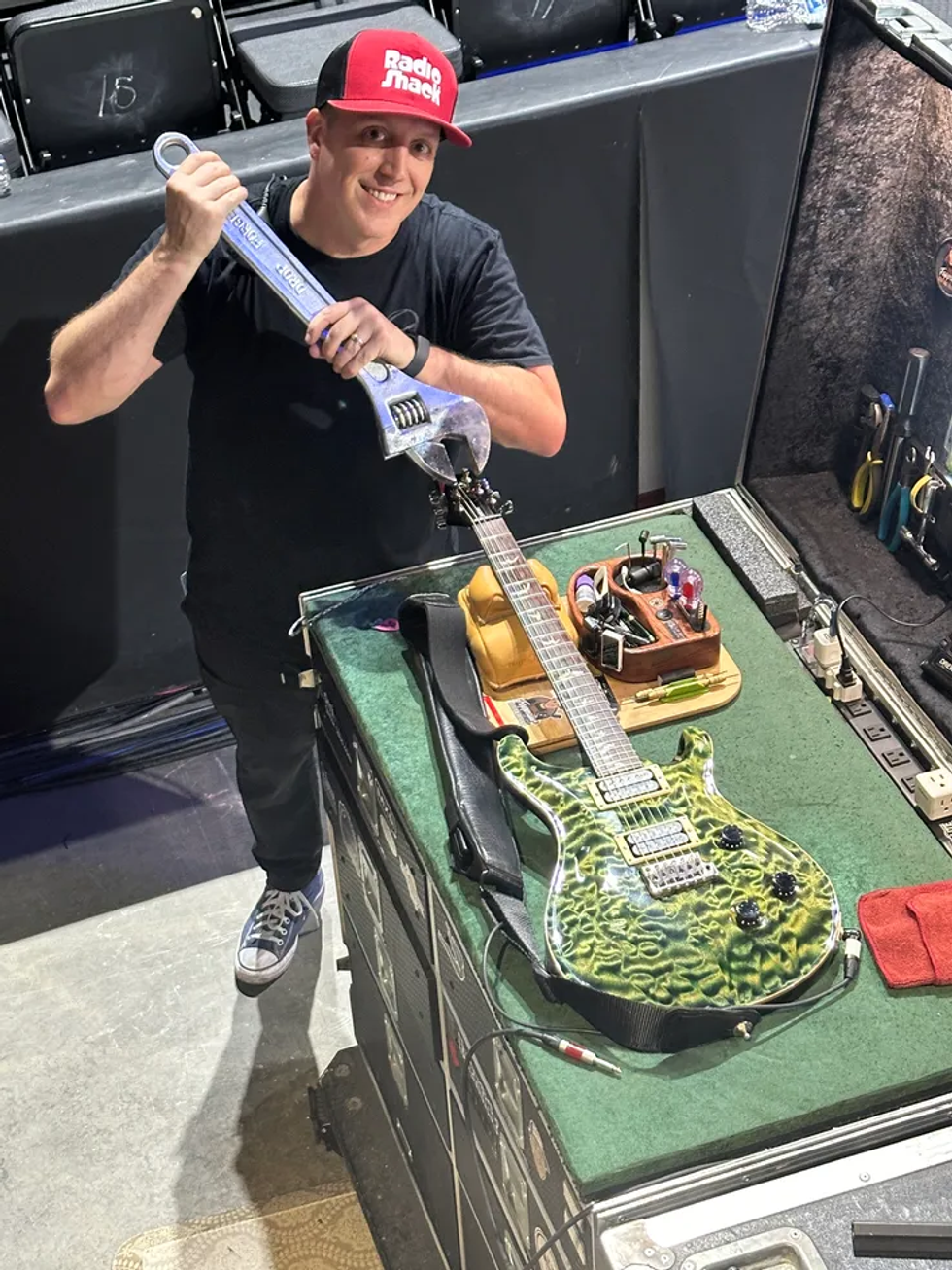
You earned a soccer scholarship and degrees in mathematics and psychology. How did you end up as a guitar tech?
Drew Foppe: I never planned to really be involved in music, ever. I wanted to do social work. But guitar kind of took over, and I just started following it. I got into a band and did that for about a year and a half. About five days after I quit, my buddies said, “Hey, why don’t you tech for Opiate for the Masses?” I was like, “What’s a tech?” [Laughs.] So I became a guitar tech, and haven’t stopped in almost 25 years.
Now you’re on the road with Shinedown, one of the biggest rock bands of the past few decades. What does a typical day look like for you when you’re on tour?
Foppe: When I get in, I immediately go and set up the warm-up room. The next hour and a half or so, I’ll change strings. That takes about three hours to do all 20 guitars. After I get done, I’ll get all the gear in position and start running all the cables for the keyboards, pedalboards, and all that stuff. Then it takes about 20 minutes to change all the wireless packs to the correct frequencies. Shortly after that, we line-check the gear with a crew jam. Everything’s pretty dialed at this point.
When the show starts, every single song is a guitar change, and they have four stages. I do about 10 to 12 miles of steps during a show!
Zach Myers’ love for gear is well known in guitar circles. Tell me about the rig you handle for him every show?
Foppe: We’re getting eight channels from Zach. There are three electric wireless lines and one acoustic. The acoustic goes out to a Fishman DI. The electric goes to two pedalboards. I have one in my tech world and one on the stage. From the boards, it goes to the [Fractal] Axe-Fx III. And from the Axe-Fx, we’re using Synergy power amps that hit two 112 ISO cabinets. We also send the amps to UA OX Boxes with a modeled 112 open back cabinet. Then there’s the outs from the Axe-Fx.
Digital modelers are usually employed to simplify signal chains. You obviously use them very differently. Do you pick a side in the digital vs. analog debate?
Foppe: I was probably right in the heart of when analog and digital were fighting for commonplace in the industry. Digital just gave you more options. Transitioning between the two, I think they’re integrated so well now that I don’t think it matters. I’ve done both for the biggest artists in the world, and stadium artists use digital and stadium artists use analog. They just use what they like and what they’re comfortable with.
You’ve worked with some incredible artists across multiple genres. Is there a secret to getting called back for the next artist or tour?
Foppe: I truly believe that having a psychology degree has helped me navigate these waters. When you’re working with artists who know exactly what they want, you just gotta listen and take it all in instead of coming in like, “I can do whatever. I can’t do whatever.” I think if you just listen to what people are saying, that gives you a good head start. That’s what really helps you grow as a tech and get other jobs.
Surrounding yourself with music, gear, and travel sounds romantic, but what are some truths about teching that you’d like to share with people considering it as a career?
Foppe: The first thing you’ve got to do is learn the craft of guitar repair, amp repair, programming, signal flow, and troubleshooting. All that stuff comes before you actually get a job. But the work aspect is only maybe 40 percent of the job. Working well with people and being self-motivated is pretty much everything else.
It’s also long hours, being away from your family, and you start to almost change your friend groups. That’s why they call it your “tour family.” So learning guitar skills, working well with people, and being okay to work when you’re tired is ultimately the key to being a guitar tech.
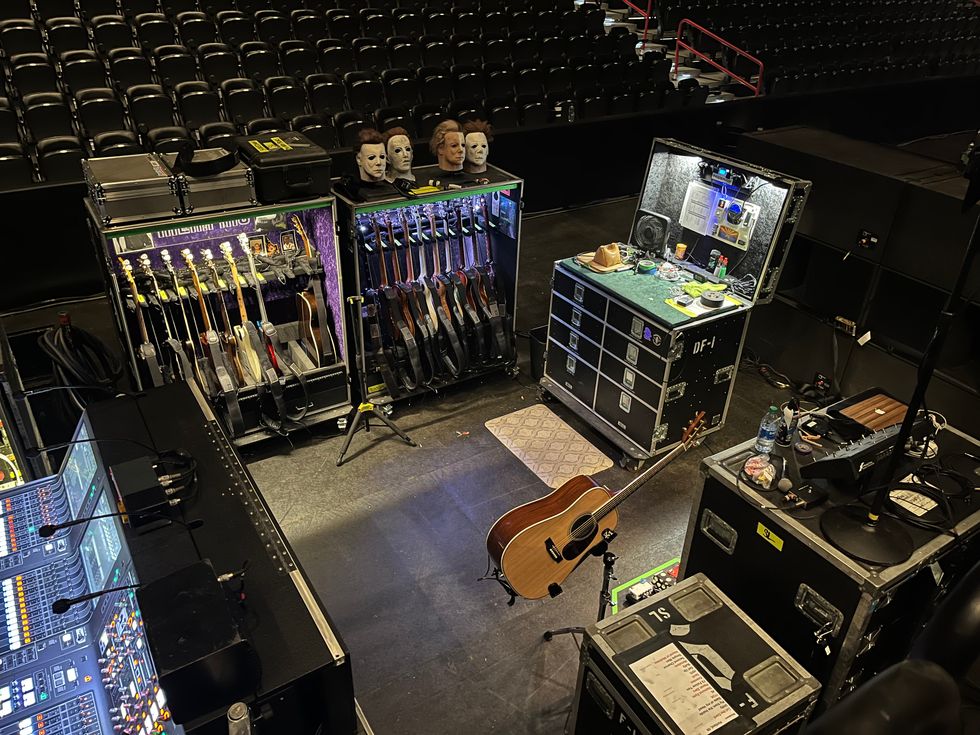
Sidestage with Shinedown.
The three tools Drew Foppe can’t live without:
● Peterson Strobe Tuner
● Music Nomad String Action Gauge
● Earplugs

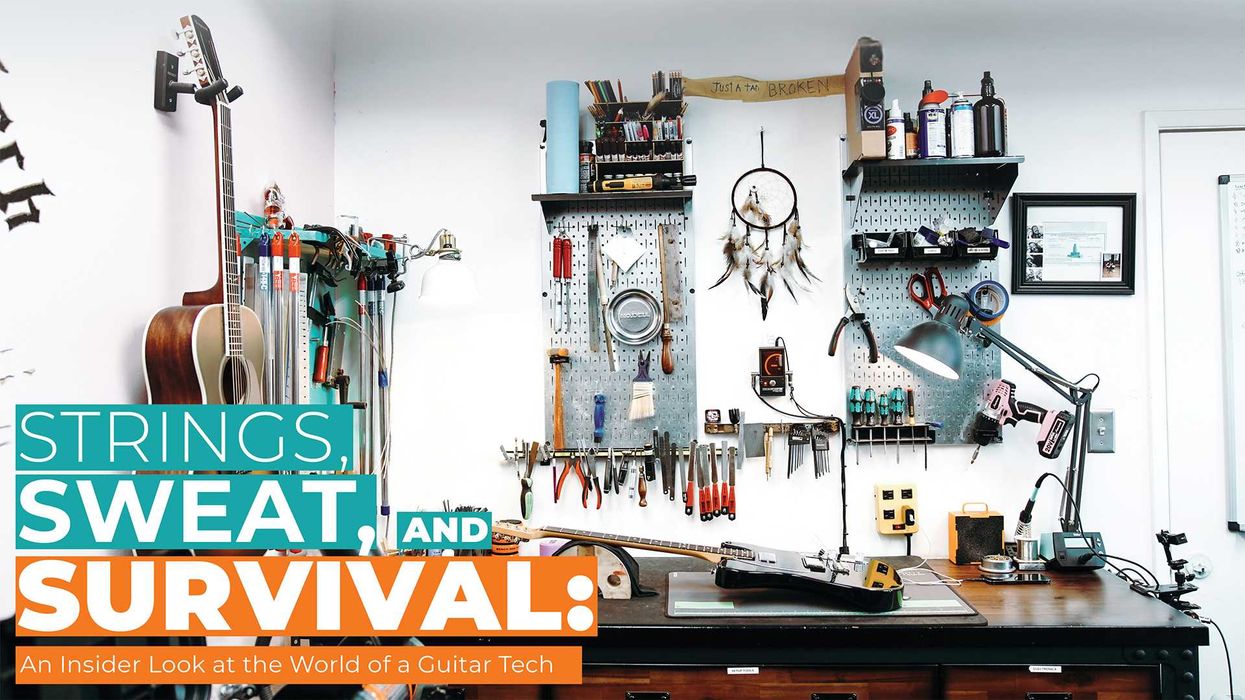

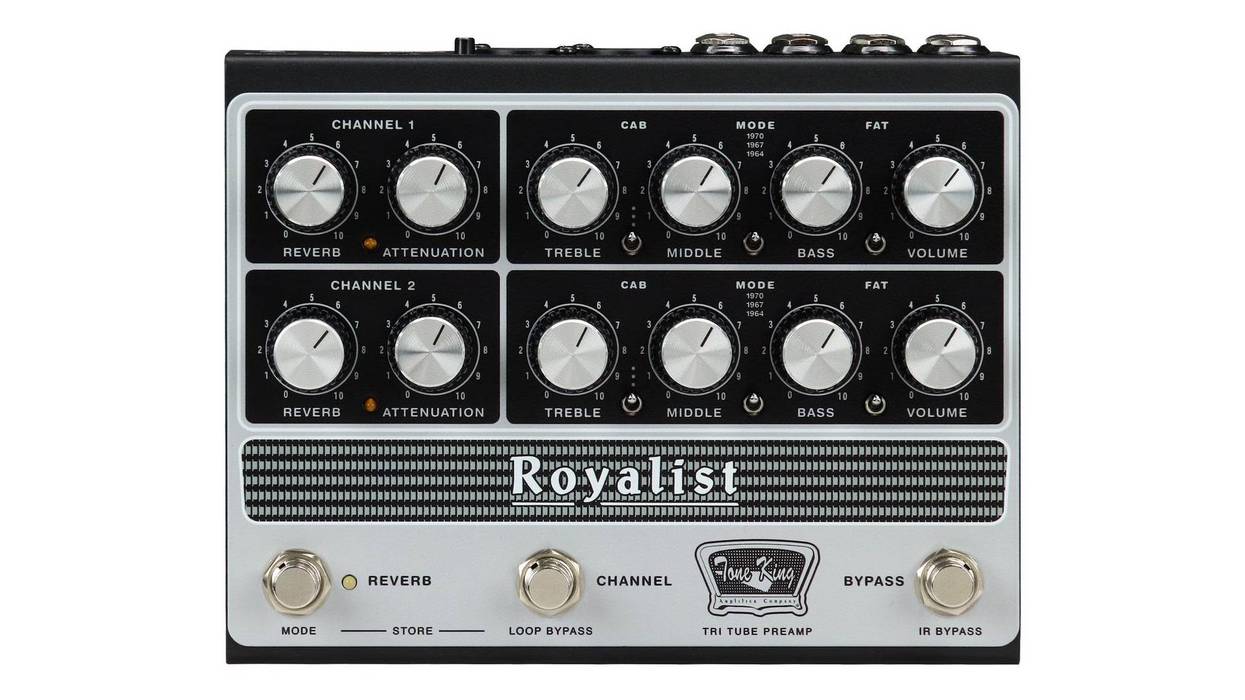
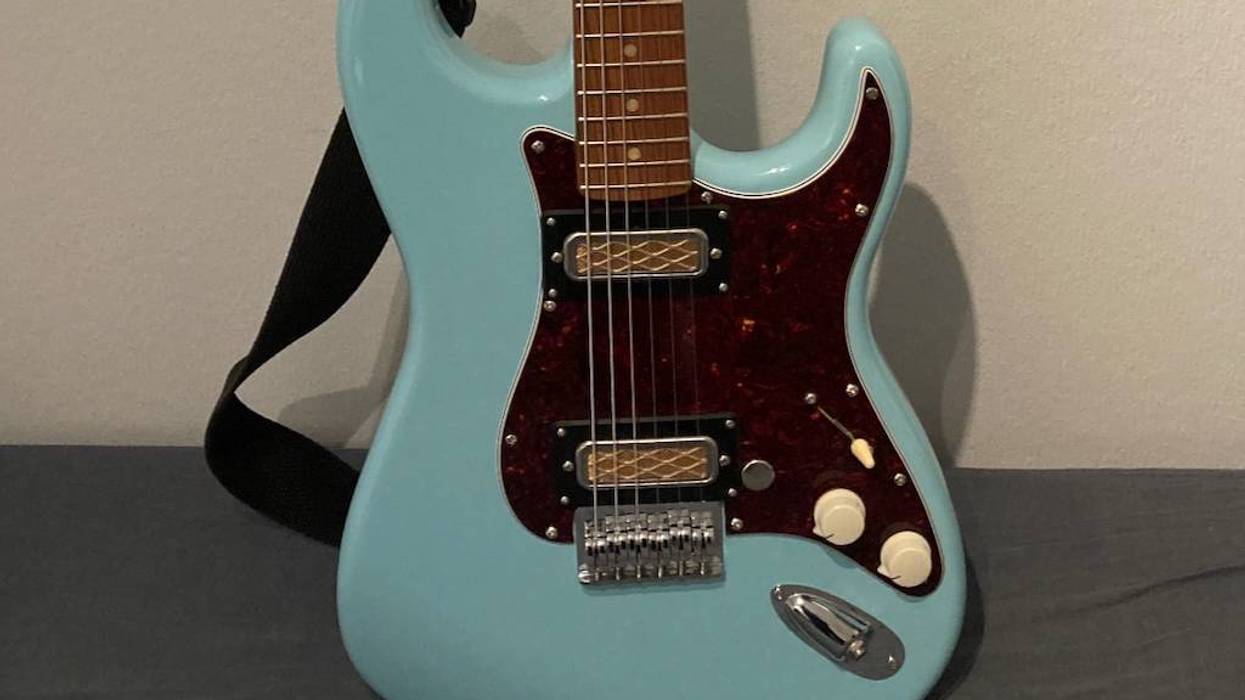
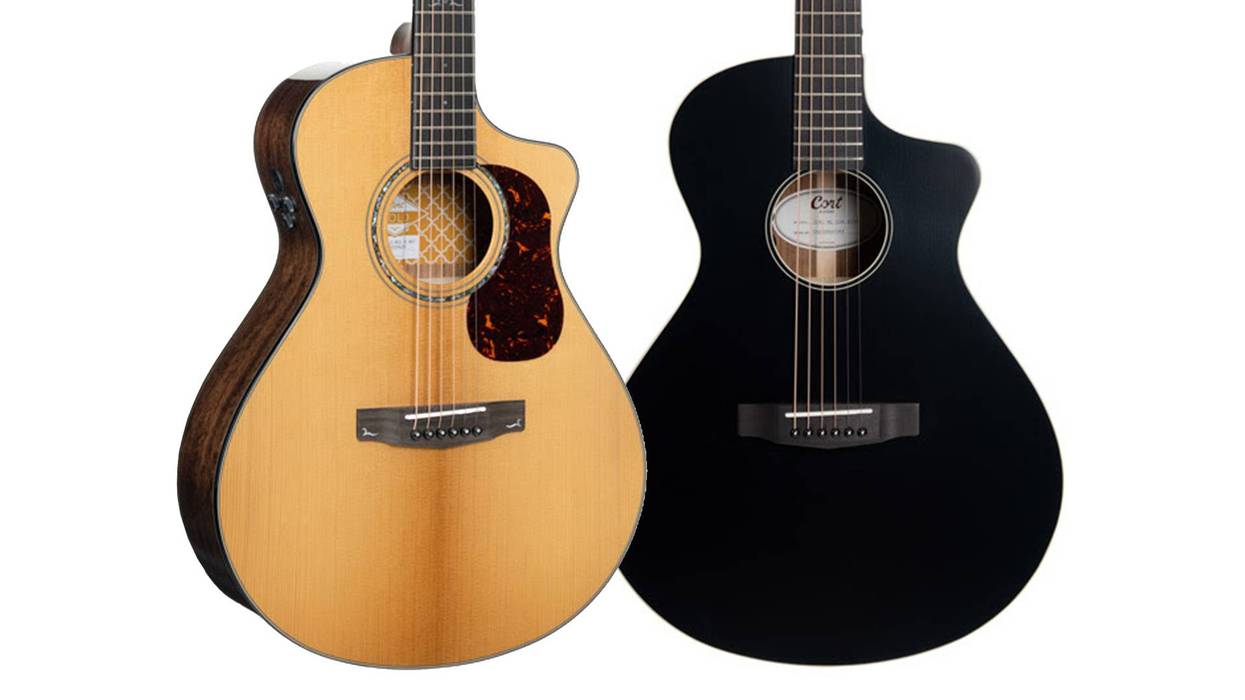
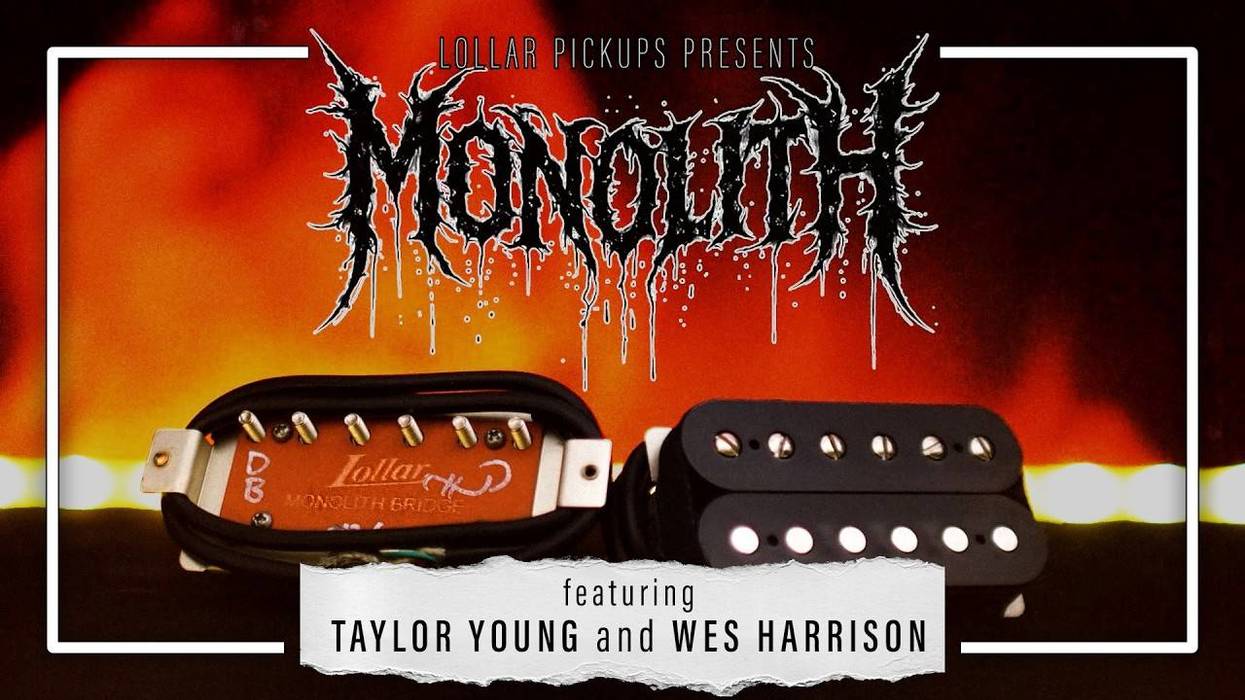
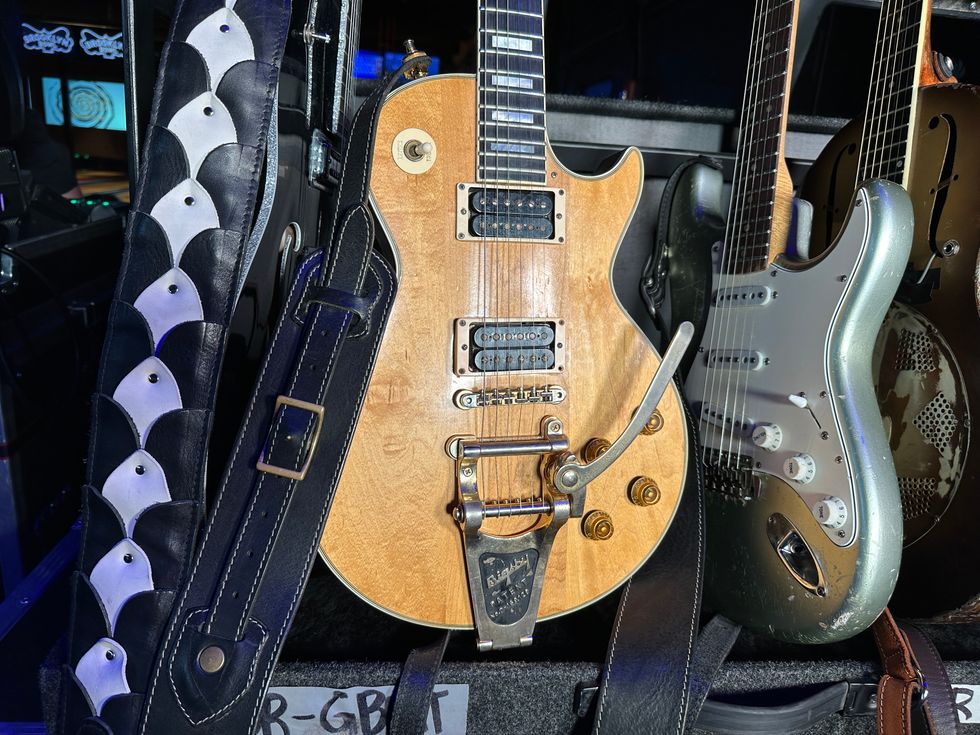
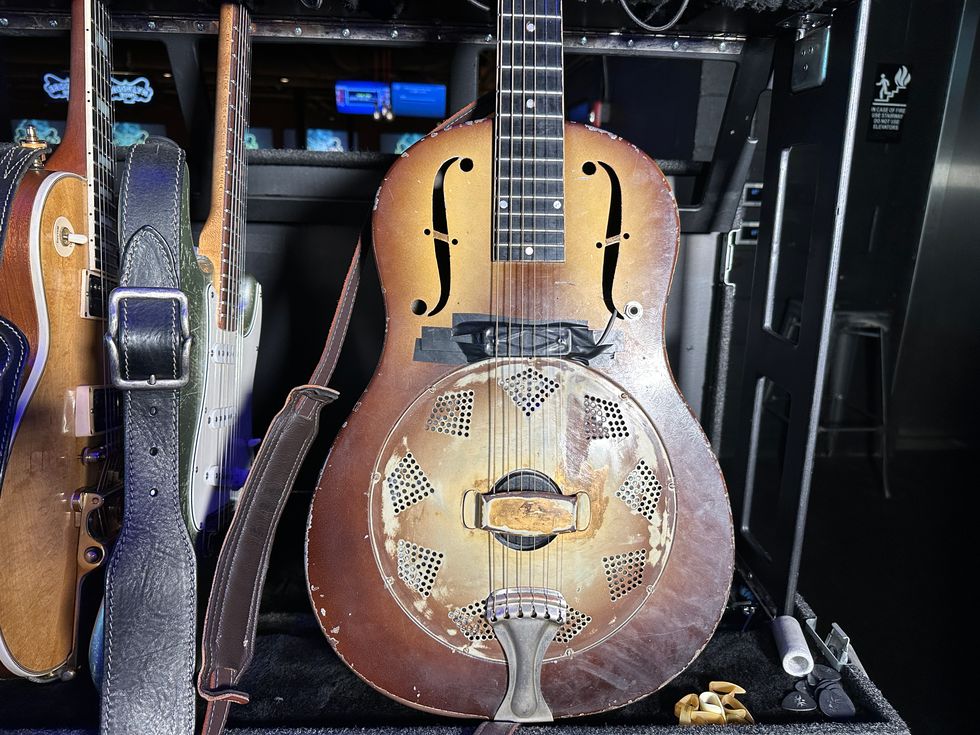
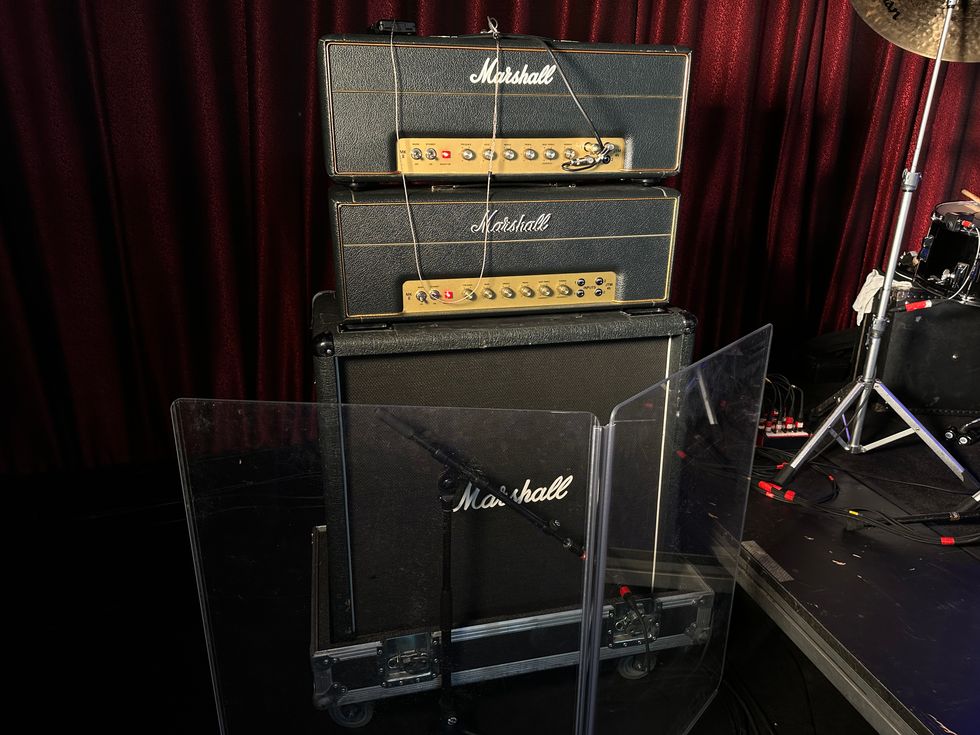
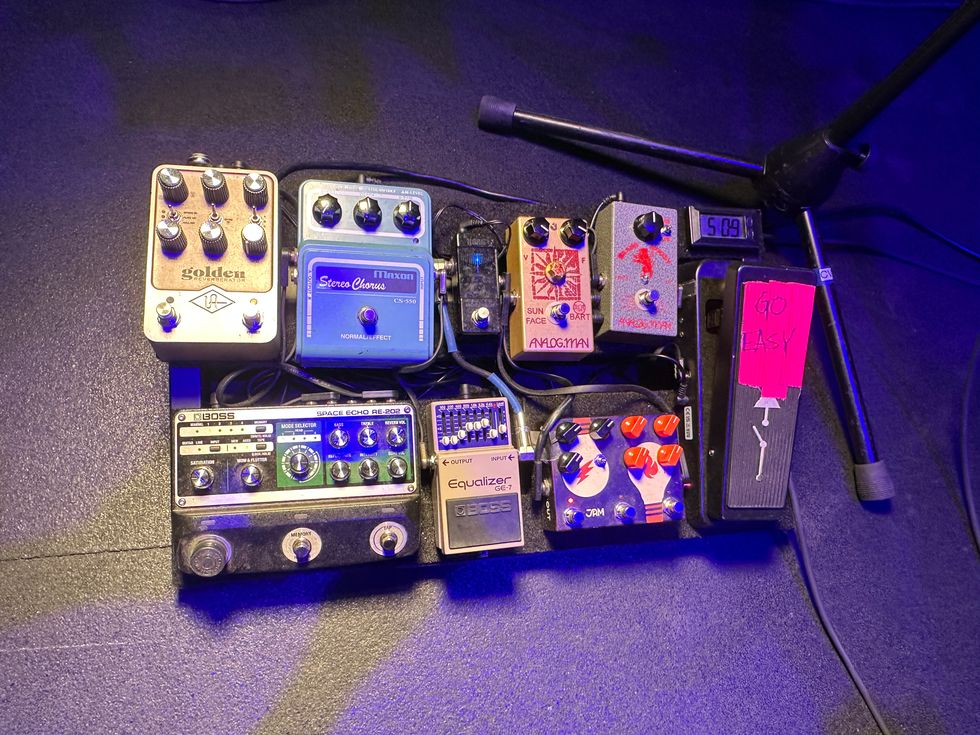
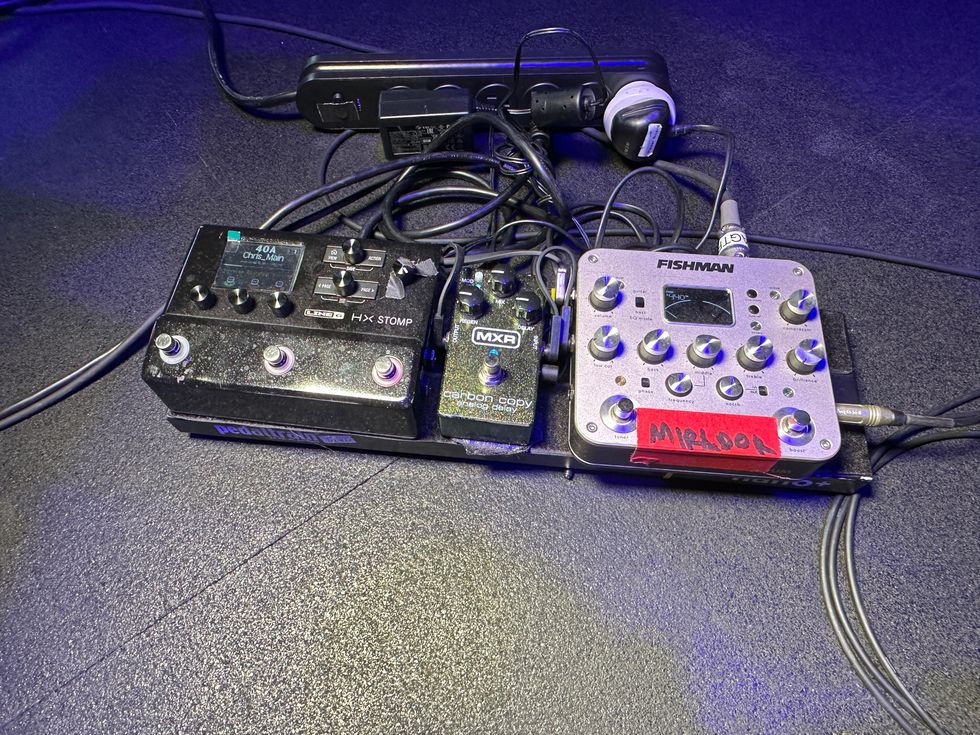
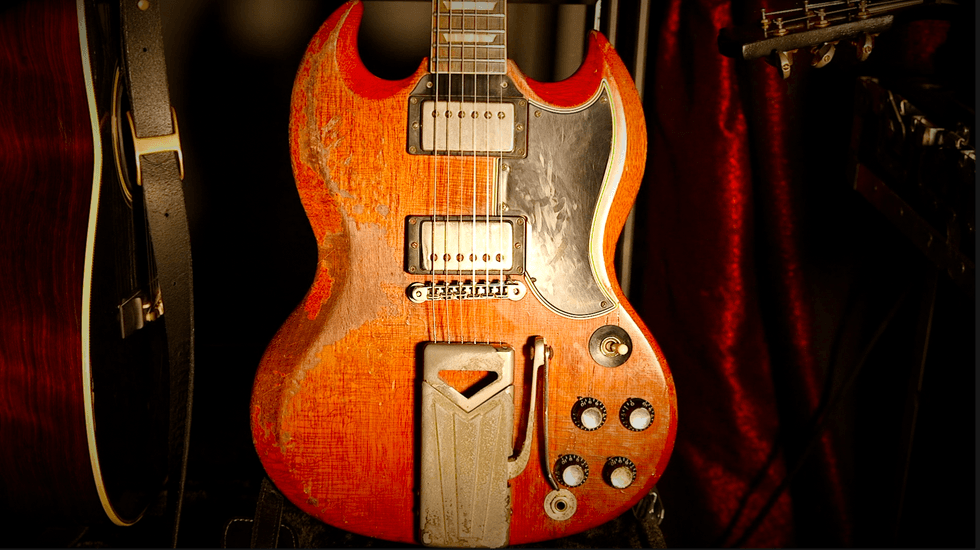
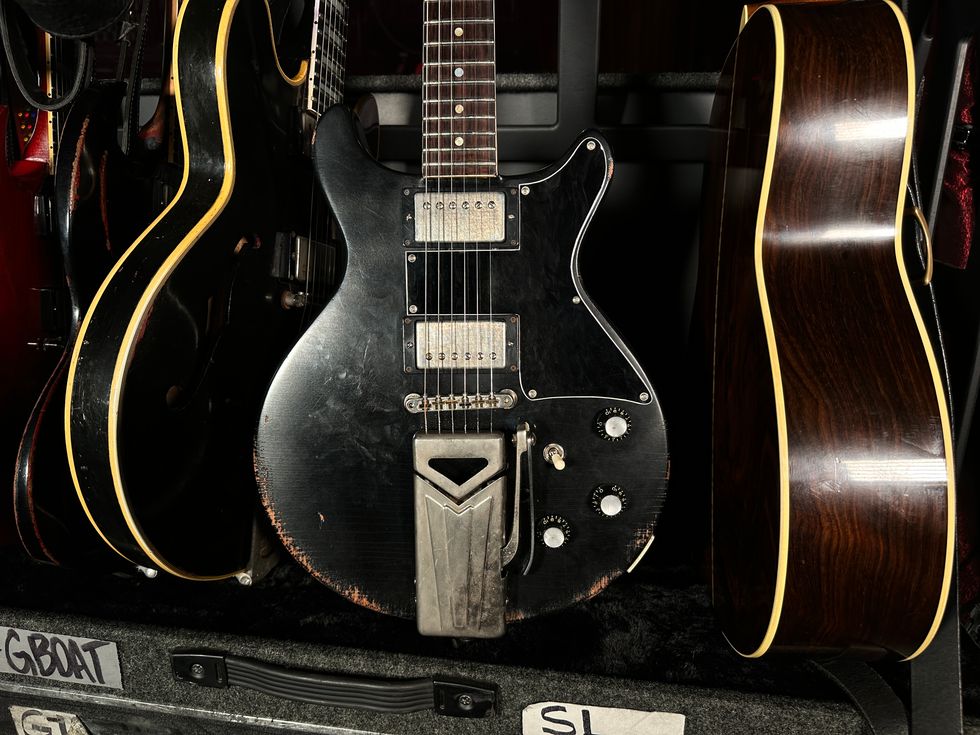
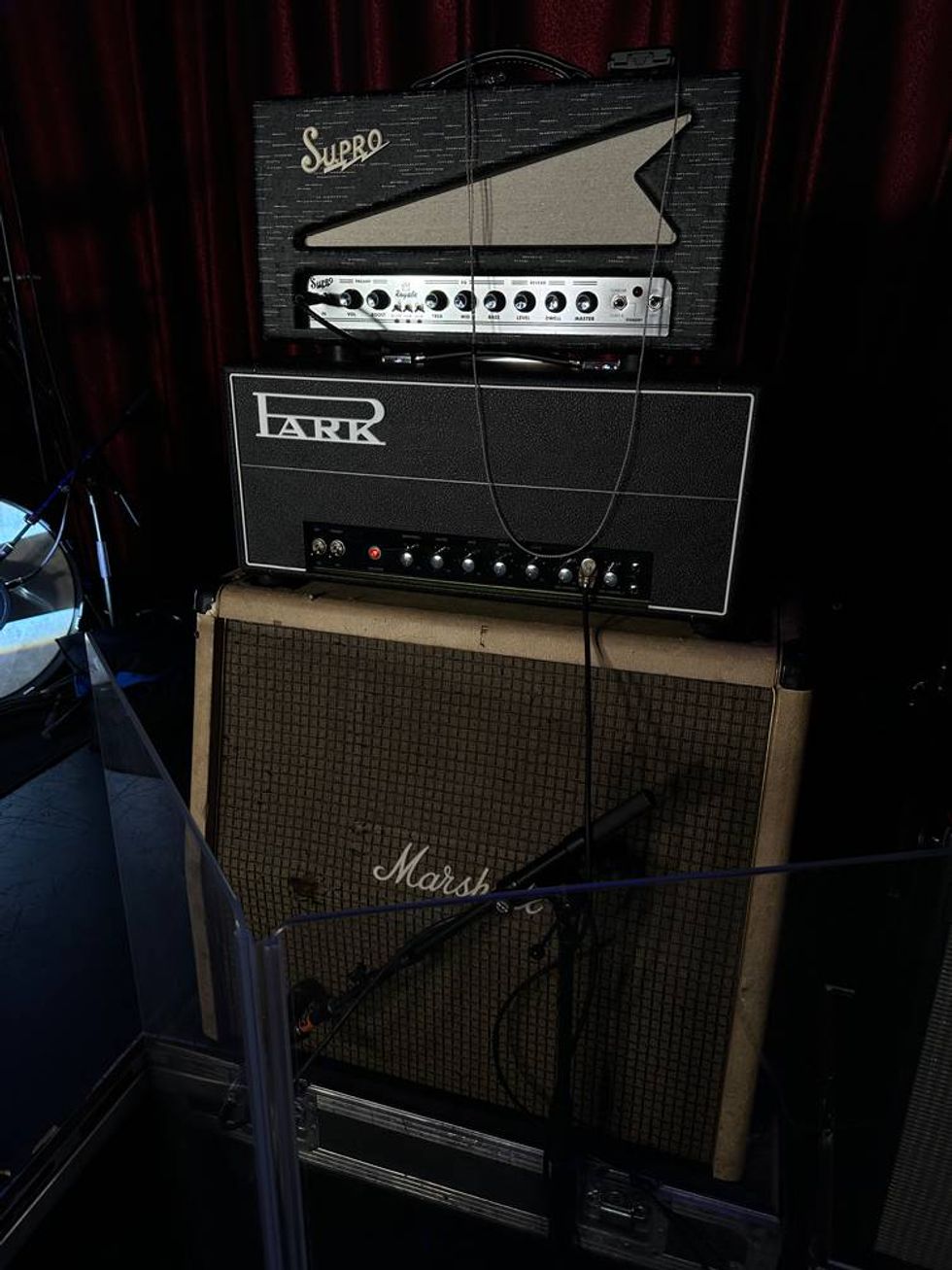
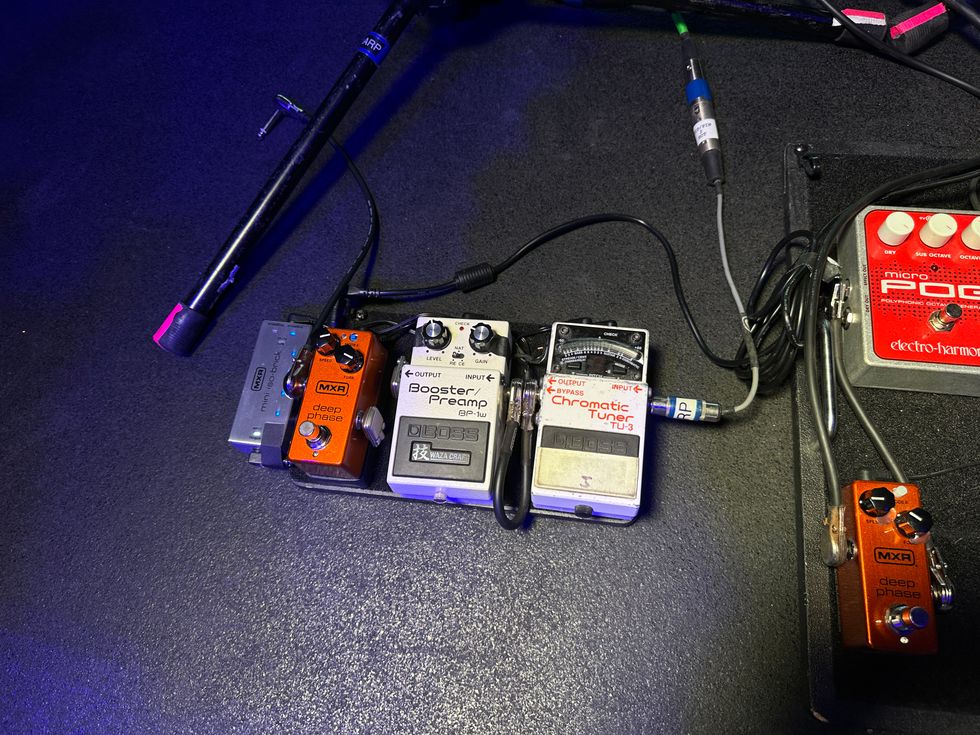
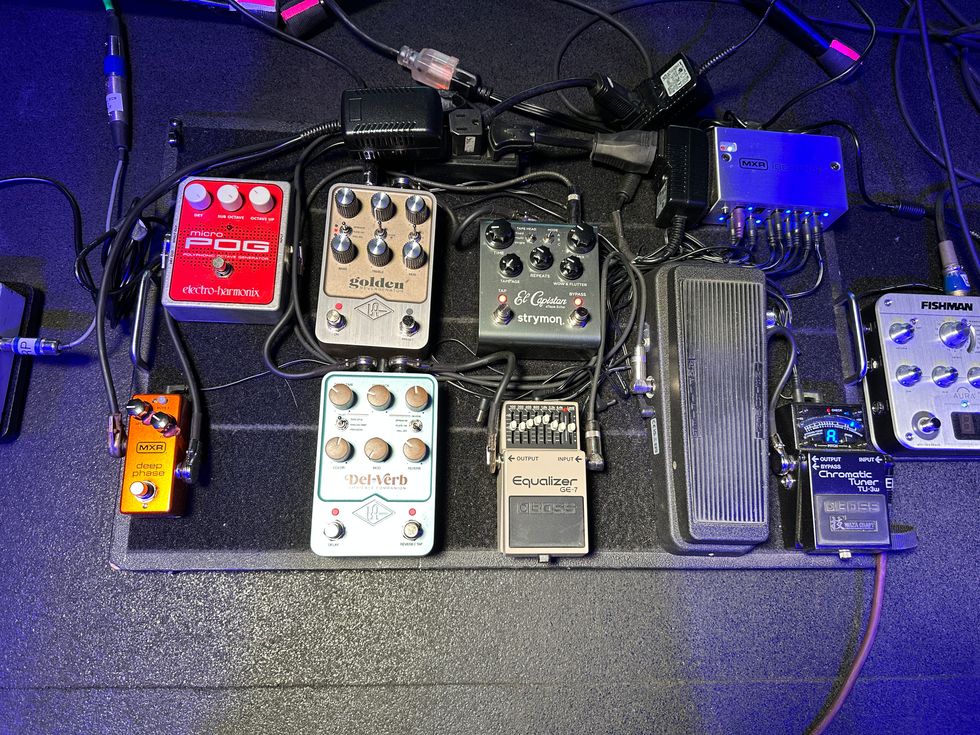
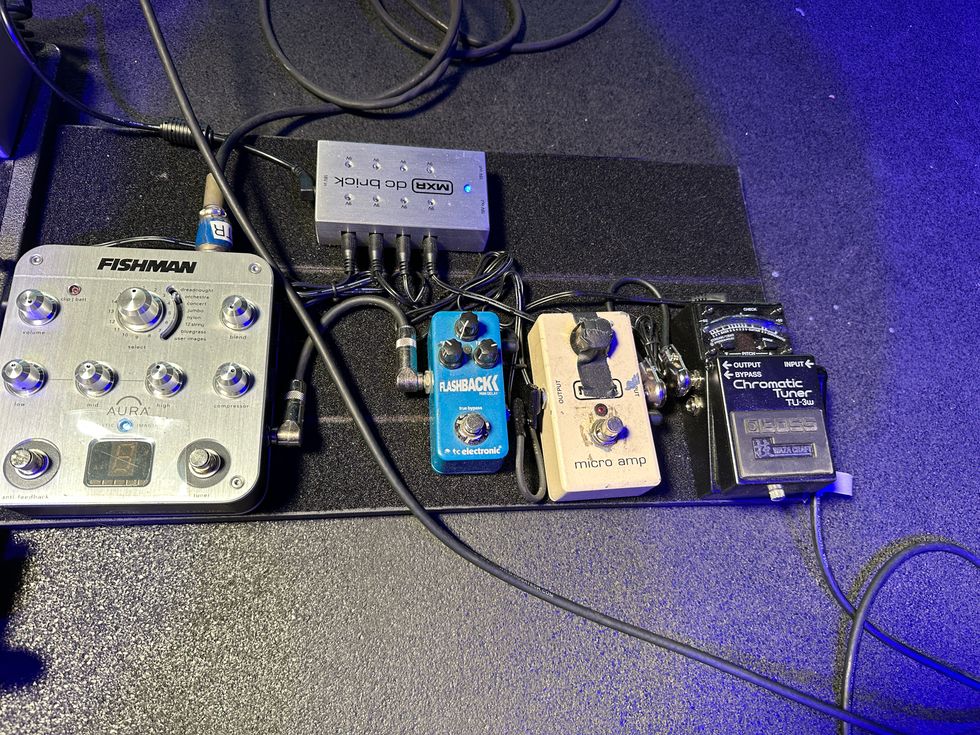

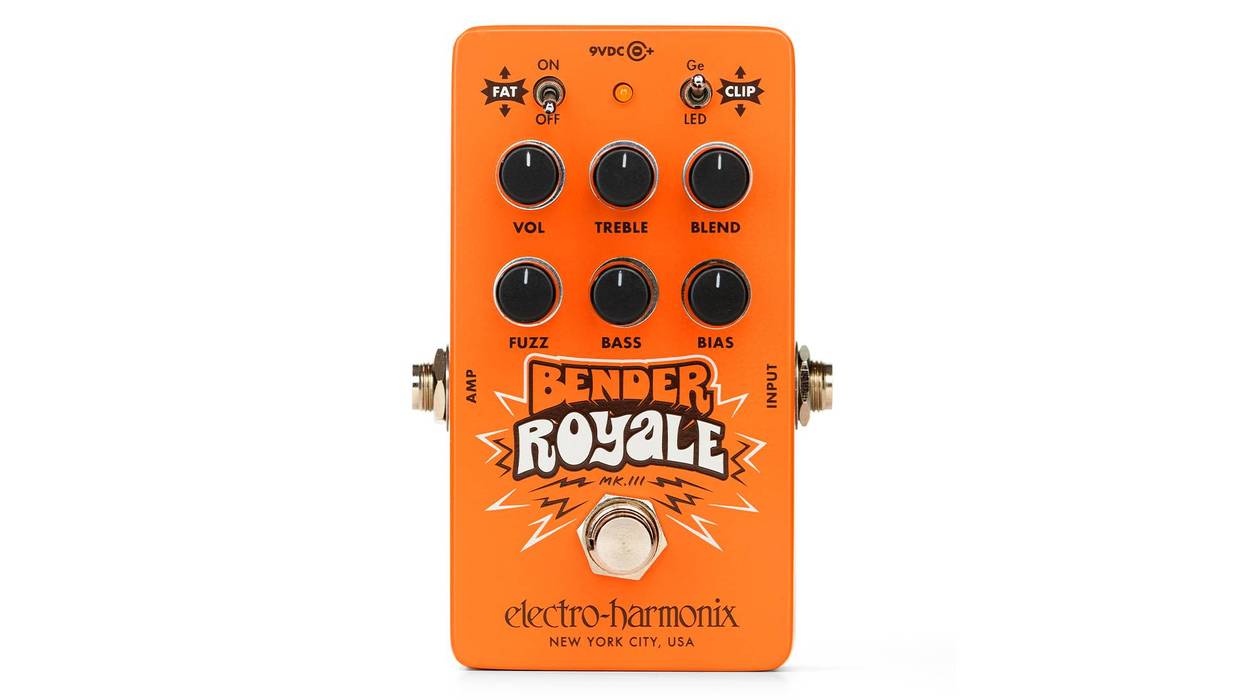
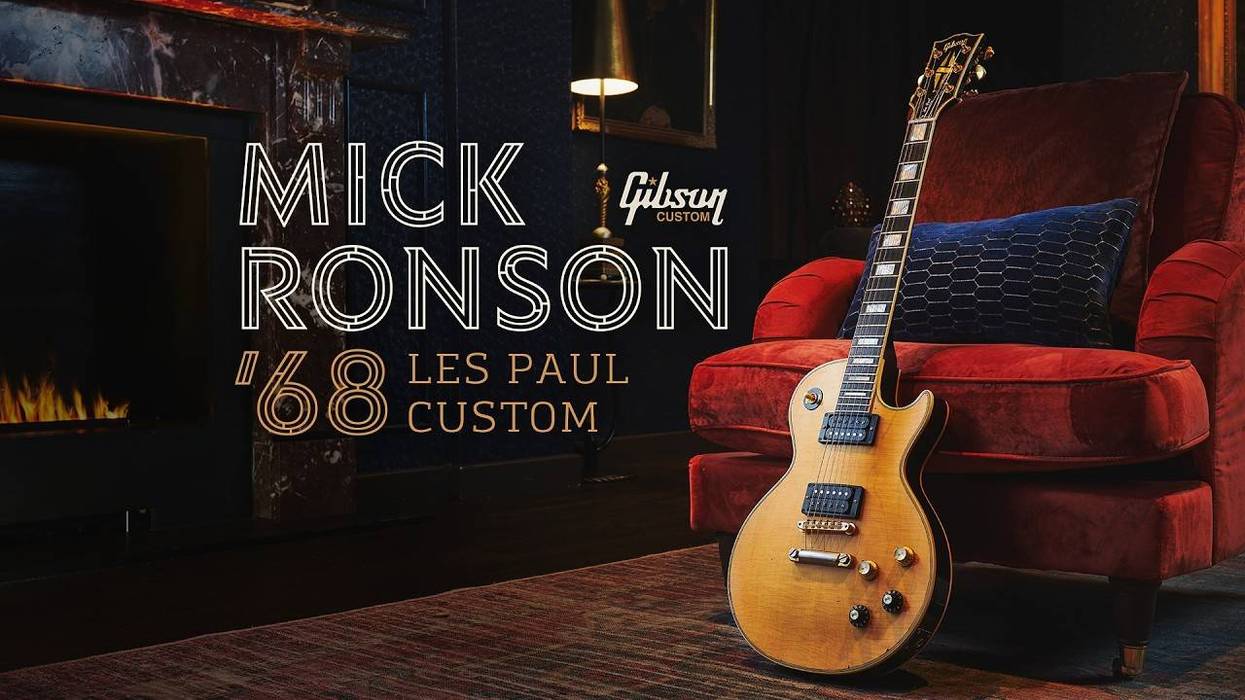
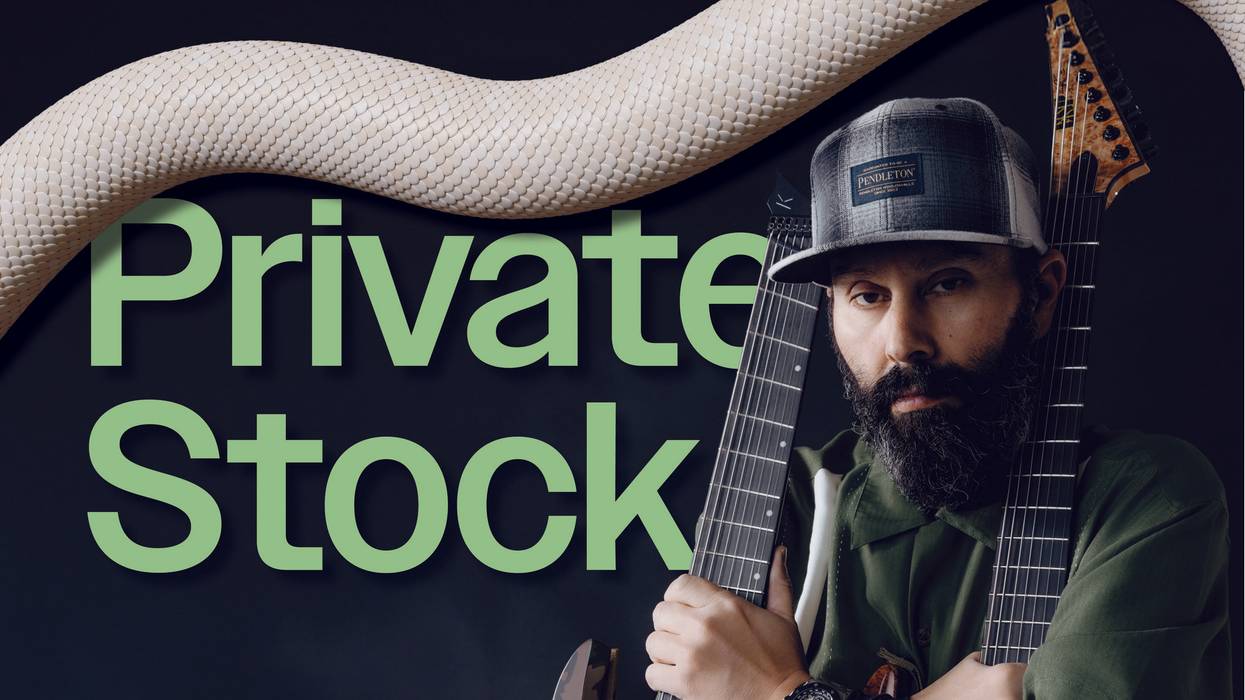









![Rig Rundown: Russian Circles’ Mike Sullivan [2025]](https://www.premierguitar.com/media-library/youtube.jpg?id=62303631&width=1245&height=700&quality=70&coordinates=0%2C0%2C0%2C0)





